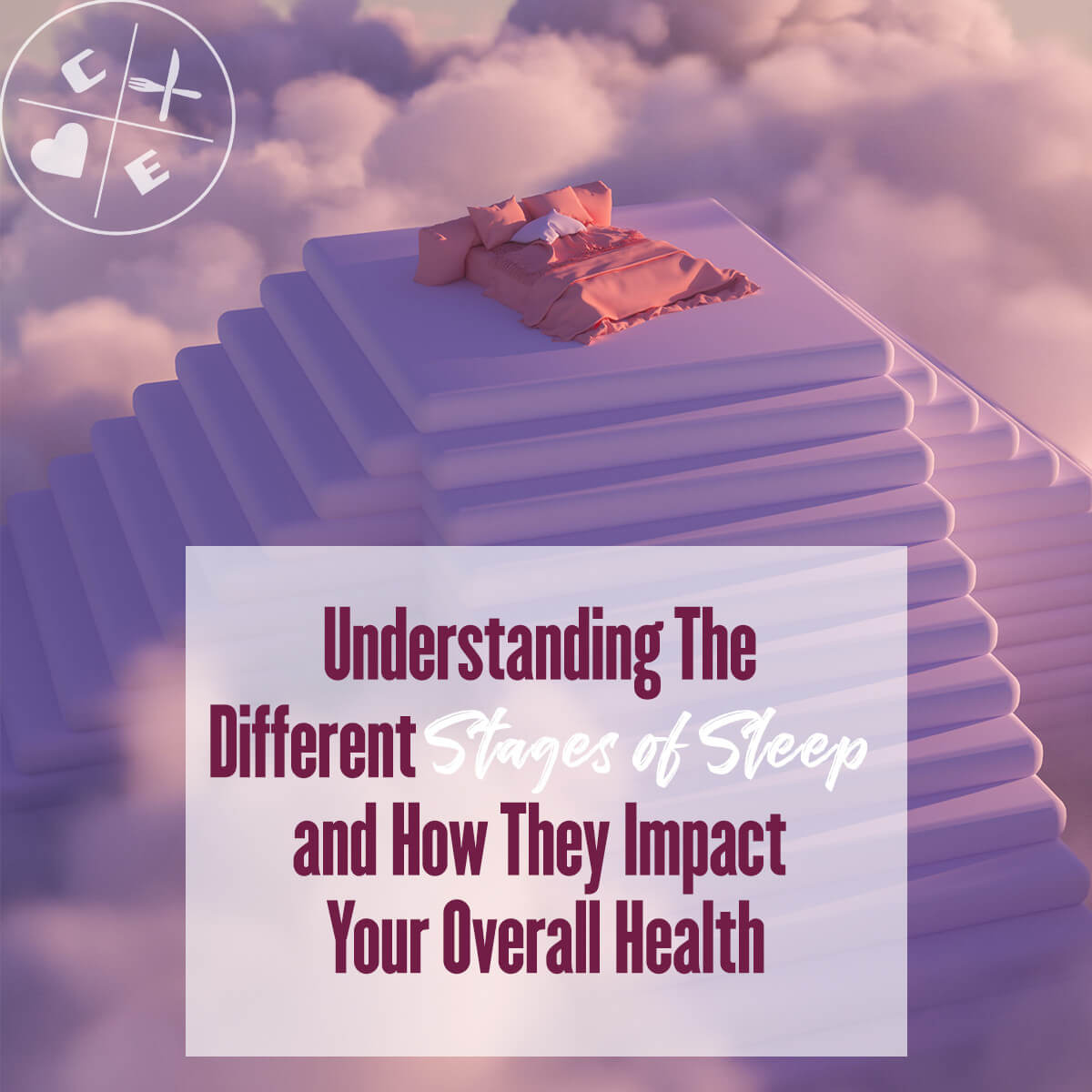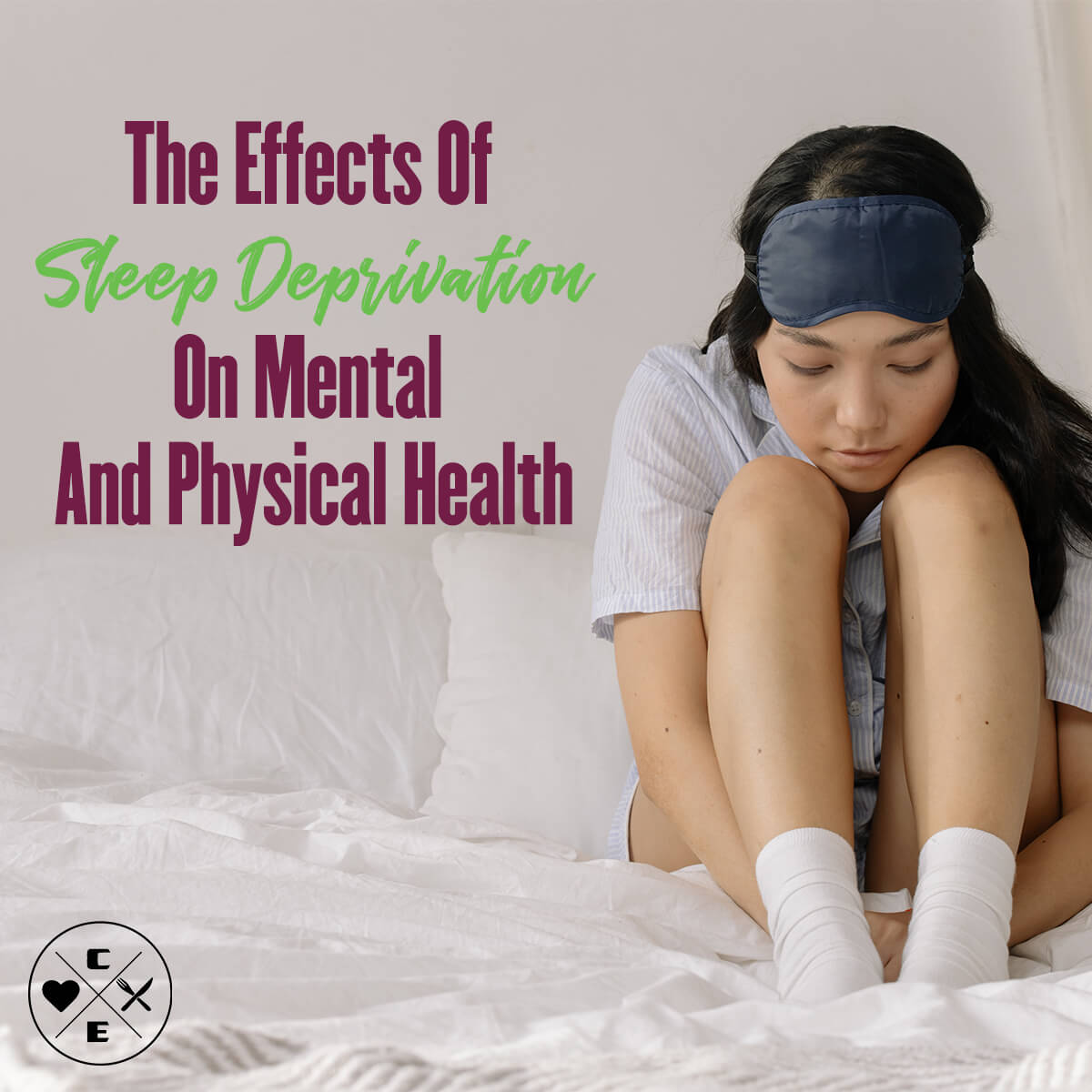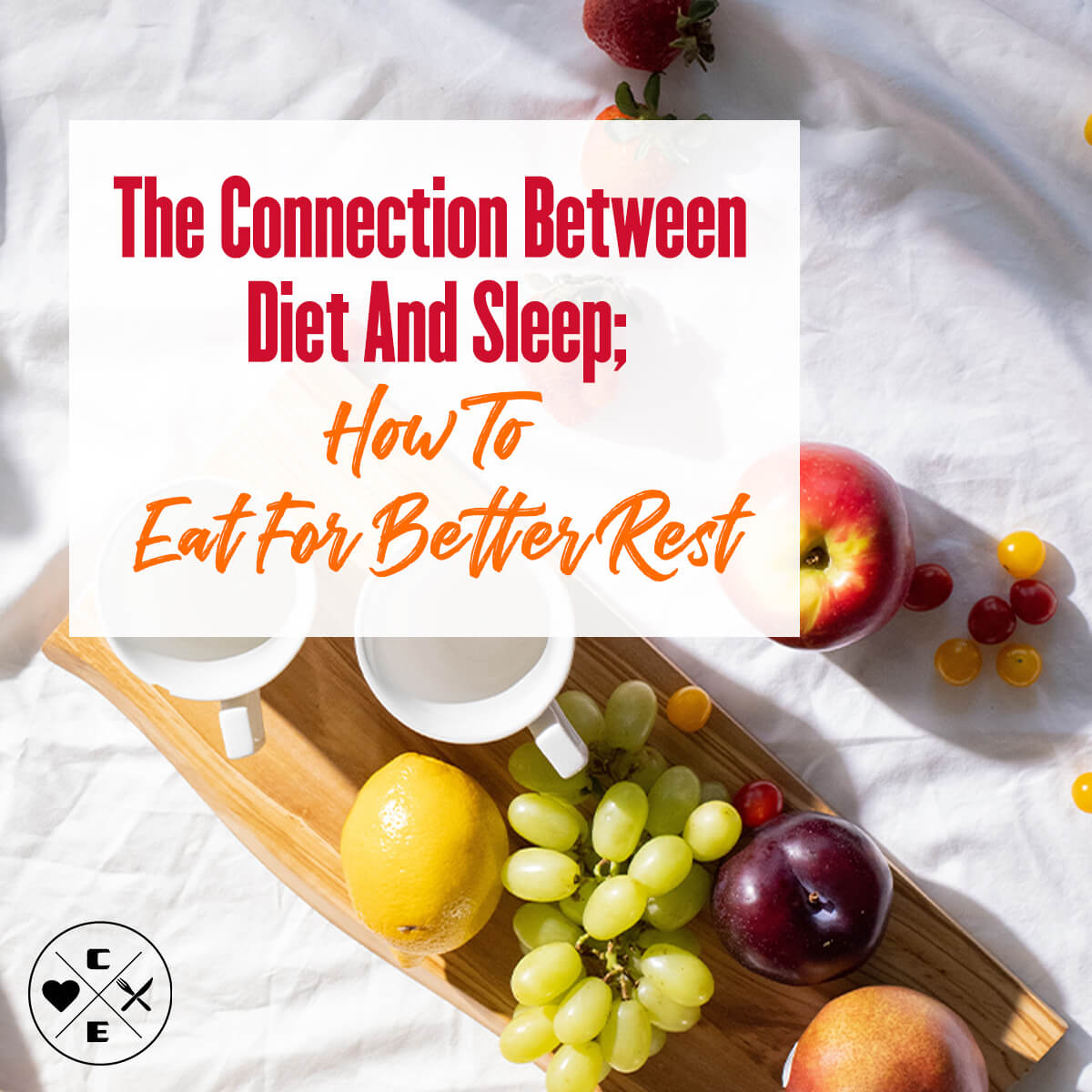
Know The Different Stages of Sleep and Their Impact On Your Health
Jason Nista
Sleep
11 minute read
You're probably familiar with the saying, "I'll sleep when I'm dead." But what you may not know is that not getting enough sleep, especially during the different stages of sleep, can actually lead to early death. That's because sleep is essential for our physical, emotional, and mental health. Understanding these stages can shed light on the importance of prioritizing sleep to ensure a longer, healthier life. We'll also provide some tips for getting a good night's sleep.
So keep reading to unlock the mystery of sleep!
Uncovering the Secrets of Sleep Stages
Have you ever woken up feeling more tired than when you went to bed? Chances are, the quality of your sleep may be to blame. Our sleep is divided into several stages, each with its own unique characteristics and benefits. In this section, we'll explore the different stages of sleep, including light sleep, deep sleep, and REM sleep, and how they interact with each other to give us the restorative sleep we need.
Light Sleep:
Light sleep is the first sleep stage characterized by low-level brain activity and slight muscle relaxation. This stage lasts for about five to ten minutes and is the transition between being awake and fully asleep. During this stage, we may experience sudden muscle contractions and a sense of falling, which is why it is sometimes referred to as the "falling asleep" stage.
Light sleep is a crucial stage of sleep that helps us transition from wakefulness to deep sleep. Without enough light sleep, our bodies may struggle to make this transition, leading to fragmented sleep and decreased overall quality of sleep. This can result in feelings of grogginess and decreased alertness during the day.
Deep Sleep:
Deep sleep is the stage of sleep when our bodies repair and rejuvenate. It is characterized by slow brain waves and complete muscle relaxation. During deep sleep, our heart rate and breathing slow down, and our bodies release growth hormone, which is essential for tissue repair and growth. Deep sleep typically lasts for about 20-25 minutes and is most important during the first half of the night.
Deep sleep is the stage of sleep when our bodies repair and rejuvenate. Without enough deep sleep, our bodies may struggle to repair and rejuvenate, leading to decreased physical and mental performance. Lack of deep sleep has been linked to a range of health problems, including decreased immune function, decreased cognitive function, and increased stress levels.
REM Sleep:
REM sleep, or Rapid Eye Movement sleep, is the stage of sleep when our brains are highly active, and our bodies are paralyzed. During this stage, we dream, and our brains process the information we've taken in during the day. REM sleep typically occurs about 90 minutes after we fall asleep and lasts for about 10-15 minutes. As the night progresses, the duration of REM sleep increases, with the longest period occurring in the early morning.
REM sleep is the stage of sleep when our brains process information and consolidate memories. Without enough REM sleep, our brains may struggle to process information and consolidate memories, leading to decreased cognitive function and increased anxiety. Lack of REM sleep has also been linked to increased irritability, decreased mood, and decreased concentration.
How the stages of sleep interact with each other:
The stages of sleep interact with each other in a cyclical pattern, moving from light sleep to deep sleep to REM sleep and back again. This cycle repeats about four to five times per night and is essential for our bodies to get the restorative sleep we need. Each stage builds upon the previous one, creating a cycle of sleep that allows us to recharge our bodies and minds.
Understanding the Stages of Sleep for Better Rest
Recognizing the significance of the stages of sleep is crucial for our overall health and well-being in today's hectic world. This segment will delve into straightforward strategies to enhance the quality of your sleep, encompassing the creation of a conducive environment for the stages of sleep, setting a bedtime routine, steering clear of sleep disturbances, and making lifestyle shifts to foster optimal sleep.
Creating an environment conducive to the stages of sleep
An environment that fosters the different stages of sleep is pivotal. Ensure your bedroom is dark, cool, and quiet. Investing in plush bedding and pillows enhances the quality of sleep. Furthermore, think about using a white noise machine or earplugs to counter potential noise disturbances.
Setting a bedtime routine
A bedtime routine is vital in preparing your body for the various stages of sleep. Activities might consist of reading, warm baths, or meditation. It's essential to avoid screens (like TVs or smartphones) an hour before sleeping since the blue light can impede the quality of sleep.
Steering clear of sleep disturbances
Disturbances, such as glaring lights or loud sounds, can hinder the stages of sleep. Ensure a tranquil, dim bedroom, perhaps using curtains or an eye mask for light prevention. Regulate your room temperature to avoid the quality of sleep being disrupted due to discomfort.
Lifestyle shifts to boost the quality of sleep
Beyond fostering a conducive environment and a routine, other lifestyle alterations can optimize sleep quality. These encompass maintaining a balanced diet, physical activity, and limiting caffeine or alcohol. Refrain from daytime naps as they might affect your nighttime sleep quality.
The stages of sleep and their implications on health are fundamental for achieving the recuperation your body demands. By cultivating an apt environment, instilling a bedtime routine, evading sleep disruptions, and adapting lifestyle habits, you can refine the quality of sleep and reap its extensive health advantages.
Another method to enhance rest is through a nourishing diet. Proper nutrition ensures your body acquires the necessary recovery. Here, Clean Eatz Kitchen steps in. With a commitment to health and fitness through tasty, nutritious meals, Clean Eatz Kitchen ensures your body gets apt nutrients, facilitating a better quality of sleep.
If enhancing the stages and quality of sleep is your goal, act now! Explore Clean Eatz Kitchen for their meal selections and embark on a path to heightened health.
The Importance of REM Sleep
REM sleep is the final stage of the sleep cycle, and it's arguably the most important one. That's because it's during REM sleep that our brains are busy consolidating memories and learning new information. REM sleep is also thought to be important for emotional regulation and stress management.
So what can you do to help ensure you're getting enough REM sleep? One thing is to make sure your bedroom is dark and quiet. And if you're having trouble falling asleep, try reading or journaling before bed.
Benefits of Deep Sleep
During deep sleep, the brain is the most active. This is when it does most of its repairing, restoring, and building. It's also when growth hormones are released, which help the body grow and repair cells. Understanding how to stay asleep longer is crucial to maximizing the benefits of deep sleep. Deep sleep is incredibly important for overall health and well-being. Getting enough of it can help improve immune function, cognitive performance, mental health, physical health, and more.
How Much Sleep Do I Need?
We all know that sleep is important, but figuring out just how much sleep you need can sometimes be a challenge. Everyone is different, but generally, adults require between 7 - 9 hours of sleep per night, and teenagers require closer to 9 - 10 hours of sleep.
You may also find that your individual needs can vary depending on how active you are during the day. If you’ve had a more active day, you may need more hours of sleep to recover and feel rested. Additionally, if you’re getting enough quality sleep, then you may not need as many hours of shut-eye as someone who isn’t getting enough quality sleep.
When it comes to understanding how much sleep you need every night, pay attention to your body and its cues. If you’re feeling a lack of energy throughout the day or struggling with low moods and irritability, it could mean your body is ready for more restful nights. Ultimately, it is important to listen to your own body and make sure you are getting the right amount of quality rest.
Recognizing Signs of Poor Sleep Quality
Are you having trouble recognizing signs of poor sleep quality? Well, there are a few telltale signs that something isn’t quite right. For example, if you wake up feeling exhausted and unrefreshed, or if you often feel sleepy during the day, these may be signs that your sleep quality is suffering.
Likewise, if you experience frequent headaches or feel foggy-brained during the day, these are likely indicators of poor sleep. In addition, poor sleep can manifest in physical symptoms such as irritability, difficulty concentrating, and an impaired immune system.
By understanding the different stages of sleep—and how they work together to create a restorative cycle—you can start to get a better sense of what your body needs in order to get the best possible quality of sleep each night.
Strategies for Improving Sleep Quality
Now that you understand the different stages of sleep, what can you do to ensure that you are getting good quality sleep? Here are a few tips:
- Avoid caffeine and alcohol close to bedtime, as they can interfere with your sleep.
- Get regular exercise during the day, as this can help release stress and give you more energy for the day.
- Try going to bed and waking up at the same time every day to establish a regular sleeping pattern.
- Make sure your bedroom is comfortable – dark and cool temperatures are best for sleeping.
- Avoid screens (including phones) close to bedtime, as they can disrupt your natural sleep cycle.
- Incorporate relaxation techniques such as deep breathing and progressive muscle relaxation into your pre-bed routine.
Adopting these strategies can help improve your sleep quality and ensure that you are getting all of the restorative rest that your body needs. Give it a try tonight!
When it comes to sleep and mental health, there's still a lot we don't know. But we do know that getting a good night's sleep is crucial for our overall health and well-being, including our mental health. And by understanding the different stages of sleep, we can work to ensure we're getting the most out of our slumber.
Apart from your daily routine, diet also plays a major role in determining the quality of sleep that you’re getting. Clean Eatz Kitchen provides a huge variety of diet plans to fuel your body with the essential nutrients that it needs for quality sleep.
Final Thoughts
Understanding the different stages of sleep and their impact on your health is essential for anyone striving to prioritize their well-being. From the rapid eye movement (REM) stage, crucial for cognitive processes and emotional regulation, to the deep sleep stage, where the body undergoes vital repair and restoration, each phase plays a unique role in maintaining your overall health. Furthermore, recognizing the connection between sleep and mental health underscores the importance of quality slumber. Poor sleep can exacerbate mental health issues, while a well-rested mind is better equipped to cope with life's challenges. In conclusion, delving into the intricacies of sleep stages not only enlightens us about our bodies but also empowers us to make informed choices for better health. By prioritizing good sleep hygiene and aiming for a balanced sleep cycle, we can unlock the full potential of our bodies and minds, ultimately leading to a happier, healthier life.
FAQ
What role does technology play in sleep disturbances?
Excessive use of electronic devices before bedtime, such as smartphones and tablets, can disrupt sleep patterns due to the blue light emitted from screens. It's advisable to limit screen time in the hour leading up to sleep to improve sleep quality.
Are there any natural remedies to improve sleep?
Yes, there are several natural remedies to improve sleep, including herbal teas (such as chamomile or valerian root), relaxation techniques, and maintaining a regular sleep schedule. However, it's essential to consult a healthcare professional before trying any new remedies, especially if you have underlying health conditions or take medications.
What if I have trouble staying asleep throughout the night?
If you have trouble staying asleep, it may be helpful to avoid excessive alcohol and caffeine, establish a calming bedtime routine, and consult a healthcare professional if sleep disturbances persist, as they may be a sign of an underlying sleep disorder.
What if I have trouble staying asleep throughout the night?
If you have trouble staying asleep, it may be helpful to avoid excessive alcohol and caffeine, establish a calming bedtime routine, and consult a healthcare professional if sleep disturbances persist, as they may be a sign of an underlying sleep disorder.



